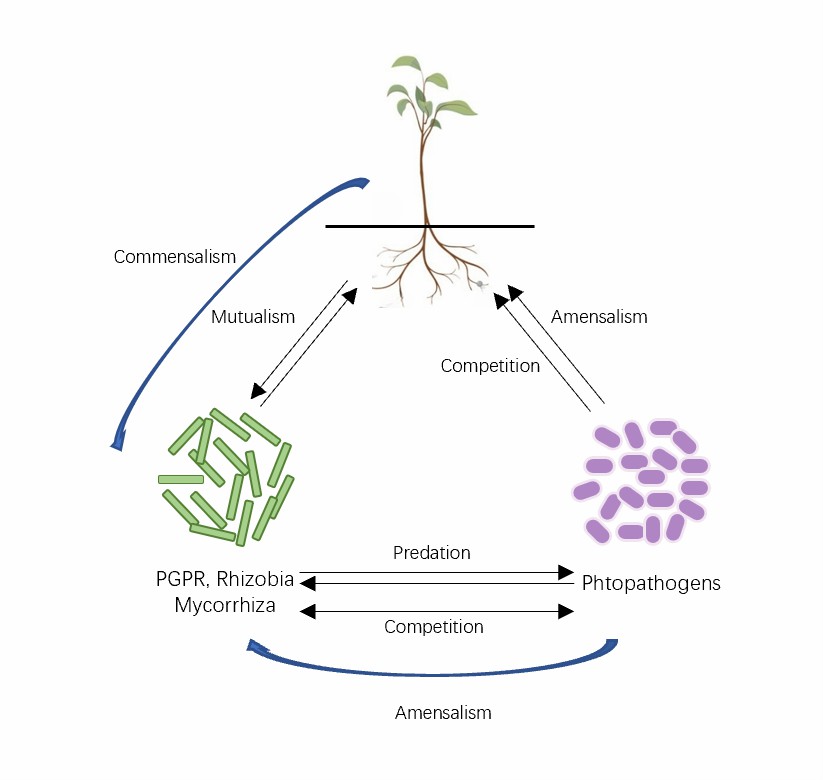Competition for nutrients, food, light, and space is more severe between two closely related species occupying the same niche. It is because the closely related species require limited resources and will fight each other for the same resources. Certain inter-root microorganisms can occupy signal recognition sites faster and colonize stably around the root system, making root-knot nematode recognition of host plant roots less efficient, and the spatial location will be greatly affected, thus reducing infestation and suppressing disease development.
As a professional biology service provider, Lifeasible offers analysis services of the competition for nutrient and spatial sites between plant nematodes and rhizosphere microorganisms to help our customers worldwide in plant scientific research. Our platform is equipped with cutting-edge facilities and professional experts to support research. Here, we provide various services according to customers' demands.
 Fig.1 Schematic representation of interactions between rhizo-microorganisms and plants.
Fig.1 Schematic representation of interactions between rhizo-microorganisms and plants.
Lifeasible has a long-term commitment to the development and application of plant nematodes. We are pleased to use our extensive experience and advanced platform to provide satisfactory service and qualified products to meet the needs of our customers. If you are interested in our services or have any questions, please feel free to contact us or make an online inquiry.
Lifeasible has established a one-stop service platform for plants. In addition to obtaining customized solutions for plant genetic engineering, customers can also conduct follow-up analysis and research on plants through our analysis platform. The analytical services we provide include but are not limited to the following:
Get Latest Lifeasible News and Updates Directly to Your Inbox
Adaptive Evolutionary Mechanism of Plants
February 28, 2025
Unraveling Cotton Development: Insights from Multi-Omics Studies
February 27, 2025